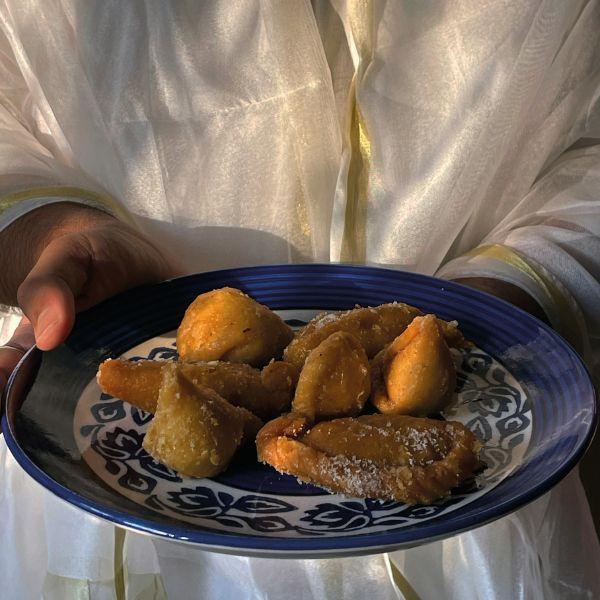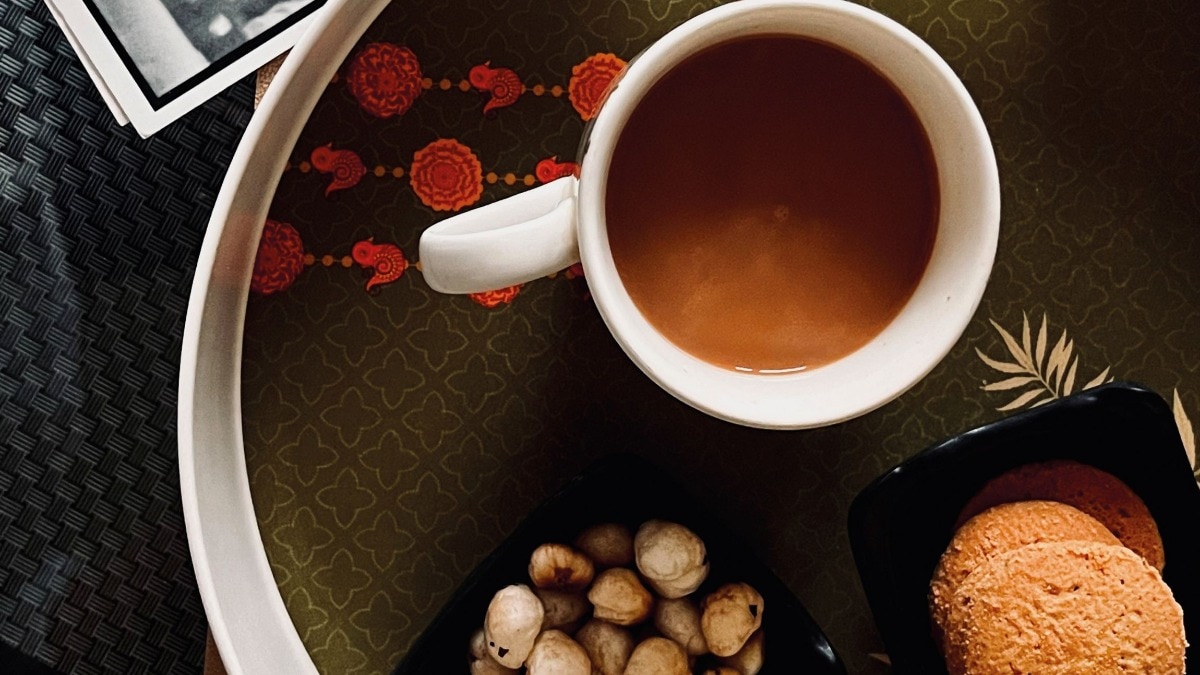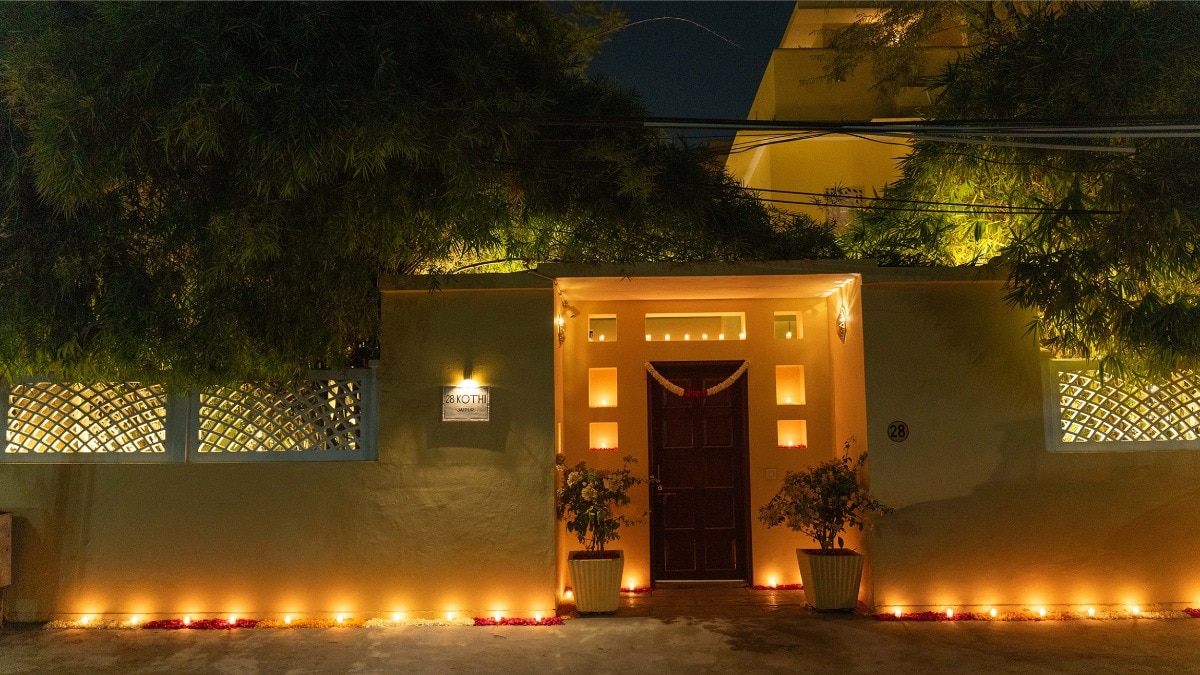
How cooking becomes a path to memory, healing, and home
An individual creates their legacy through the food. It is their history and the various ways in which they pass it on to others.


"Have I ever truly eaten for myself?”
It’s a question I have scribbled at the back of my journals since I was 14. I treat it like a promise—one I hope to fulfil someday. When I look back on my childhood, I see my amma on a summer afternoon. She hums under her breath, her bangles jingle to that tune. I walk and hide behind the curtain, watching her silently. “Rice is what makes a home,” she says to me as she washes rice until the water runs clean. That sentence stuck with me like my fate. It made me wonder the ways in which I would build my home. It doesn’t matter if there’s anything else; there should always be rice.
Two decades later, I was making my home in a different country when I realised my relationship with food had changed. I had forgotten my appetite. There was an uneasy rhythm between my body and myself. I “forgot” to eat. Sometimes for days. My disconnect with food was inherited. Colonisation fractured and controlled the hunger of my ancestors, the impact of which lingers on my life like a curse. The questions I’d learnt by rote echoed in my ears—chew your food properly! What is the hurry? Why so much food? Why so little? Have more! Eat slowly. Don’t drink water between! Take a smaller plate.
Food never meant joy; it was just sustenance. This bond existed between black and white. The qualities of food that I noticed from my childhood went from ritual, to nourishment, to sustenance. When the former two are stripped away, we lose the essence and true meaning of why we eat. There’s a way to eat, there’s a way to create community through food. An individual creates their legacy through the food. It is their history and the various ways in which they pass it on to others.
This intimacy of food, while warm, also becomes a weapon of destruction. Food is tied to seven sins, the excess of which reflects our greed. It is both power and vulnerability, control and chaos. History has been witnessing the ways in which food (or the lack thereof) has been weaponised against humanity. From the Bengal famine to the Palestinian genocide, it was a way through which the superstructures control our bodies and shape our futures. Food is ritual, it is history but above all, it is instinct. In lands that have witnessed colonial hunger and dispossession, ones where spice runs through memories, the instinct is one of the very few things that remained ours. No matter how detached we are from cooking (and feeding), we will know what truly brings our everyday curries to life.
It offers space to hold our histories and simultaneously create our own. This cultural history is malleable, the one untouched by the outside world. It is personal and sacred, more so for people from the queer community, where food becomes a no-man’s land. We interpret, wrestle and create our own traditions from the ones that claim us alien, the ones who refuse our belonging. It is a constant battle and bargain to make sure we don’t fully conform, but at the same time, make our belonging known.
Miles away from home, I pondered on food and ways to heal. Gradually, cooking (and feeding) became an act of quiet assertion on histories that silently overlooked me. I wasn’t just nourishing, I was reclaiming. I came to know solidarity not through words but by the hands that fed—during political protests, at weekly dinners of dal cooked by a friend from Nepal, generous servings of Pakistani aachargosht prepared on a warm spring evening, a shared glass of tea with a stranger—and by nurturing everyone else around me. Generosity resisted erasure. Feeding was intimately political. It held me and my body, slowly putting me together like a broken vase. Not quite perfect but somehow whole.
It was an October full moon night when I made my third attempt at making kheer. The annual autumn full moon carried the weight of myth and magic. It was the night when the moonlight turned everything celestial. One is meant to offer the sweet rice pudding to the gods, pray for a healthy winter and consume it the next day before sunrise. This ritual is a mortal attempt to dissolve boundaries between the universe and the self, an invitation to the gods to bless us with a prosperous home and body.

Unlike the other times, I found my hands picking up rice and milk, mixing them all like a cosmic dance. I hummed a folk song under my breath as I crushed cardamom between my palms, slowly stirring it all together. I turned the stove off after adding a pinch of turmeric, a cheap alternative for the saffron and gave it a final mix. That night, it was kept on my fire escape to be blessed by the moon. I woke up early the next morning and took the first bite of that kheer. It was perfectly cooked, just the right amount of creamy and not too sweet, just how my amma makes it.
“Was it truly blessed?” I asked myself. For the first time ever, it tasted like home.
That evening, my friends and I sat on the kitchen table and read a silent prayer. We scooped out some sacred sweet rice and licked through our respective bowls. None of us is particularly spiritual, but that night, the kheer brought us together. It was more than just a sweet offering; it was hope and an unspoken ritual of belonging. In that moment, I became a part of the history which attempted to erase us. This instinct is proof that I belong.
On a full moon night, I began making my legacy by eating for myself.
All images: Harsh Aditya
This article first appeared in the November 2025 issue of Harper's Bazaar India
Also read: The ultimate guide to Michelin-starred dining
Also read: Why does an avocado toast continue to be your breakfast staple, no matter where you are in Los Angeles?










